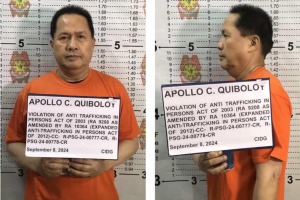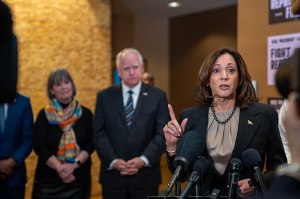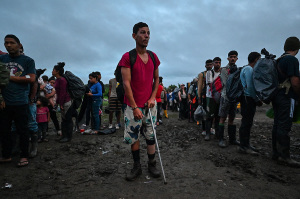Pope Benedict XVI Officially Installed
At his first official public Mass, the pope exressed hope for the future of the Roman Catholic Church, while promising to serve as a shepherd through the “desert” of the world with absolute reliance on Christ.
Pope Benedict XVI was officially installed as leader of the Roman Catholic Church on Sunday, April 24, 2005, where he celebrated the first public Mass of his papacy.
Addressing an estimated 350,000 in attendance and over 1 billion Catholics around the world, the new pope gave a homily where he recalled the late John Paul II, described himself as a “weak servant of God,” expressed hope for the future of the church, and promised to serve as a shepherd through the “desert” of the world with absolute reliance on Christ.
"The human race – every one of us – is the sheep lost in the desert which no longer knows the way. The Son of God will not let this happen; he cannot abandon humanity in so wretched a condition. He leaps to his feet and abandons the glory of heaven, in order to go in search of the sheep and pursue it, all the way to the Cross. He takes it upon his shoulders and carries our humanity; he carries us all – he is the good shepherd who lays down his life for the sheep.," Pope Benedict said according to an official Vatican transcript.
The message comes at a time when the Roman Catholic Church is experiencing both renewed strength in Africa and Latin America and declining numbers in Europe. The address contained both visions of a bleak, lost world and hope in Christ.
To reinvigorate the faithful, he proclaimed: “The Church is alive – she is alive because Christ is alive, because he is truly risen.”
During the Mass, he was given two symbolic items to wear. The first was a Pallium woven of pure wool, which was placed on his shoulders. The second was a gold ring with the image of St. Peter casting a net into the sea.
He explained that the Pallium “may be considered an image of the yoke of Christ,” adding that, “God’s yoke is God’s will which we accept.” However, he said, “This will does not weigh down on us, oppressing us and taking away our freedom.”
He added, “God’s will does not alienate us, it purifies us – even if this can be painful – and so it leads us to ourselves. In this way, we serve not only him, but the salvation of the whole world, of all history.”
“What the Pallium indicates first and foremost is that we are all carried by Christ. But at the same time it invites us to carry one another.” he said.
He also explained a “deeper meaning” of the Pallium, saying that the pastoral symbol represented an alternative to the “cynical image” of ancient kings who ruled their people with power, treating them like sheep which could be discarded.
Pointing to John 10:14 he added that there was a difference in Jesus Christ, who said “I am the good shepherd … I lay down my life for the sheep.”
The pope continued, saying “It is not power, but love that redeems us! This is God’s sign: he himself is love.”
He warned against “all ideologies of power,” saying that “the world is saved by the Crucified One, not by those who crucified him.”
Recognizing that his task was a difficult one, he asked people to pray for him “that I may learn to love the Lord more and more.” He said, “Pray for me, that I may not flee for fear of the wolves. Let us pray for one another that the Lord will carry us and that we will learn to carry one another.”
At the installation, the pope also received a gold “fisherman’s ring.” Representing Peter’s call to be a shepherd.
Quoting the story found in Luke 5:1-11, he described the consoling words of Christ as Peter was reminded what his new work was to be, “Don't be afraid; from now on you will catch men.”
The pope added, “It is really true: as we follow Christ in this mission to be fishers of men, we must bring men and women out of the sea that is salted with so many forms of alienation and onto the land of life, into the light of God. It is really so: the purpose of our lives is to reveal God to men.”
The Pope Benedict reminded those in attendance of Pope John Paul II’s installation address in 1978: “Do not be afraid! Open wide the doors for Christ!”
He added, “ No! If we let Christ into our lives, we lose nothing, nothing, absolutely nothing of what makes life free, beautiful and great. No! Only in this friendship are the doors of life opened wide. Only in this friendship is the great potential of human existence truly revealed. Only in this friendship do we experience beauty and liberation. And so, today, with great strength and great conviction, on the basis of long personal experience of life, I say to you, dear young people: Do not be afraid of Christ! He takes nothing away, and he gives you everything. When we give ourselves to him, we receive a hundredfold in return. Yes, open, open wide the doors to Christ – and you will find true life. Amen.”
After the homily, the Pope boarded a car similar to the “pope-mobile” of his predecessor - but without bulletproof glass - and made a short trip around St. Peter’s square, greeting those in attendance.




























